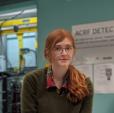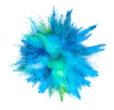

Showing 621 - 640 of 1791 results


Aquatic ecosystems
Research on the impacts of land-use, contamination, water management and climate variability on aquatic ecosystems..
Scientific ingenuity at work
Contributing to research that strengthens the defence of Australia
Accommodation, Meals and Transport ANSTO-HZB Neutron Training Course 2024
Australian scientists support industry with a visionary new portable radiation imaging system
A team of Australian scientists have created a new portable device that can pinpoint the exact location of radiation sources, faster and more accurately than ever before.
Bringing radiochemistry to life

COVIDSafe Plan
This COVIDSafe Plan describes the actions that ANSTO will take to keep our staff, contractors and visitors safe and minimise the risk of the spread of COVID-19 infection.

Groundwater science
Water is a resource that needs careful management to ensure it is used sustainably. In this data set, students analyse real research data about the sustainability of groundwater on Rottnest Island. These activities are suitable for students in Years 7 to 10.
Students will:
- understand the concepts of groundwater and aquifers and the role of the water cycle
- use MS Excel to construct simple graphs (or draw graphs by hand)
- interpret and analyse graphs and other representations of data
- investigate the effects of a changing climate on groundwater resources
- distinguish between correlation and causation
Collaboration develops new imaging protocol
Imaging protocol assesses molecular mechanism of work in the treatment of deadly childhood cancer neuroblastoma.

Role at ANSTO

Role at ANSTO
Dr Meng Jun Qin is a materials scientist with expertise in computer modelling

Code of Conduct: AANSS 2024
Funding supports seafood traceability
Grant supports development of handheld technology to verify origin of seafood.
First malaria-human contact mapped with Nobel Prize-winning technology
Research represents significant step towards developing vaccine
Analysing residual weld stresses leads to better structures

Accommodation, Meals and Transport NRS2025

Accommodation, Meals and Transport - PD Workshop 2025

Investigating isotopes
Learn about isotopes using real examples and real data, including comprehensive isotopic data of the first twenty chemical elements in the periodic table (hydrogen to calcium). Teachers can use the accompanying worksheet, in sections or in its entirety, to develop student skills in literacy, numeracy, critical and creative thinking and ICT. These activities are suitable for students in Years 9 to 12.
Students will:
- learn how the number of neutrons and protons in an isotope affects its nuclear properties
- construct a section of the Table of isotopes, using MS Excel
- investigate the properties and uses of different isotopes
Using the power of artificial intelligence to help detect disease
An international collaboration led by The University of Sydney and supported by ANSTO has developed an advanced, innovative artificial intelligence application that could be used to help examine tissue samples and identify signs of disease/

Scientific Computing
The Scientific Computing team supports researchers by performing numerical simulations that complement experimental research. In particular, we use state-of-the-art software to perform computational quantum mechanical modelling, molecular dynamics simulations, lattice dynamics calculation, data analysis and visualisations.